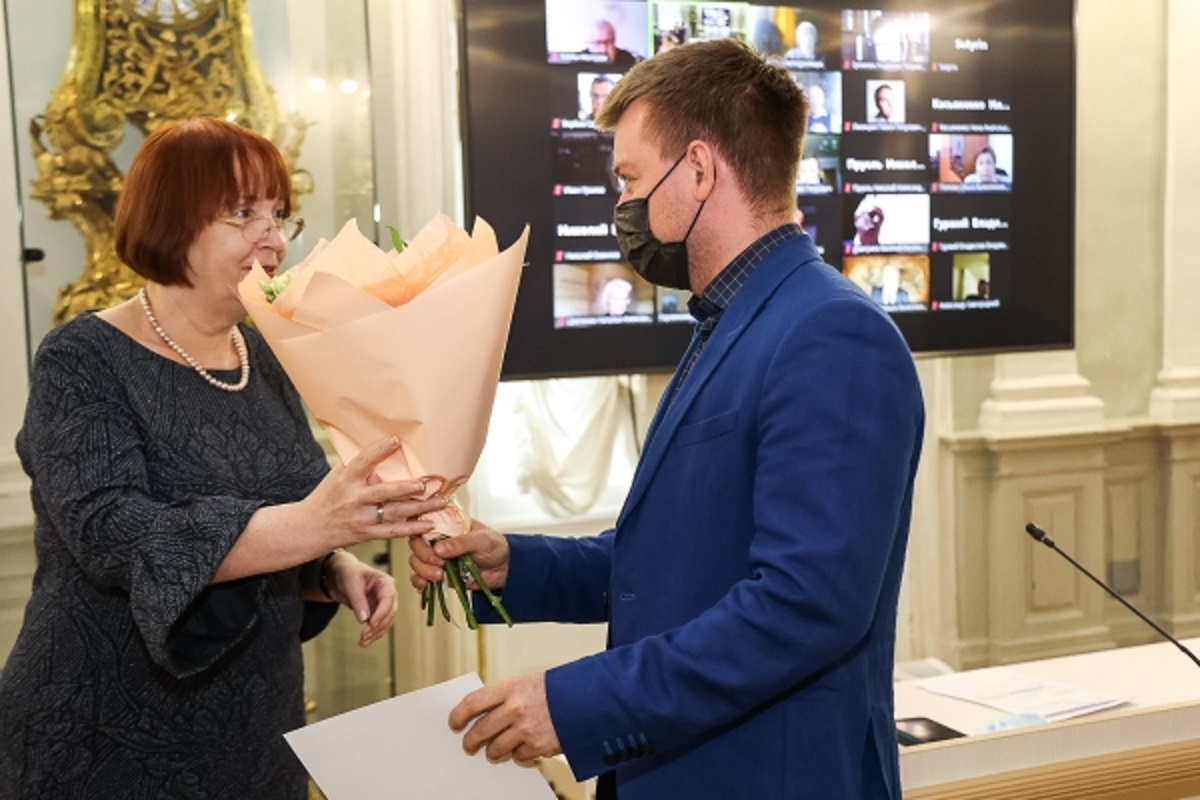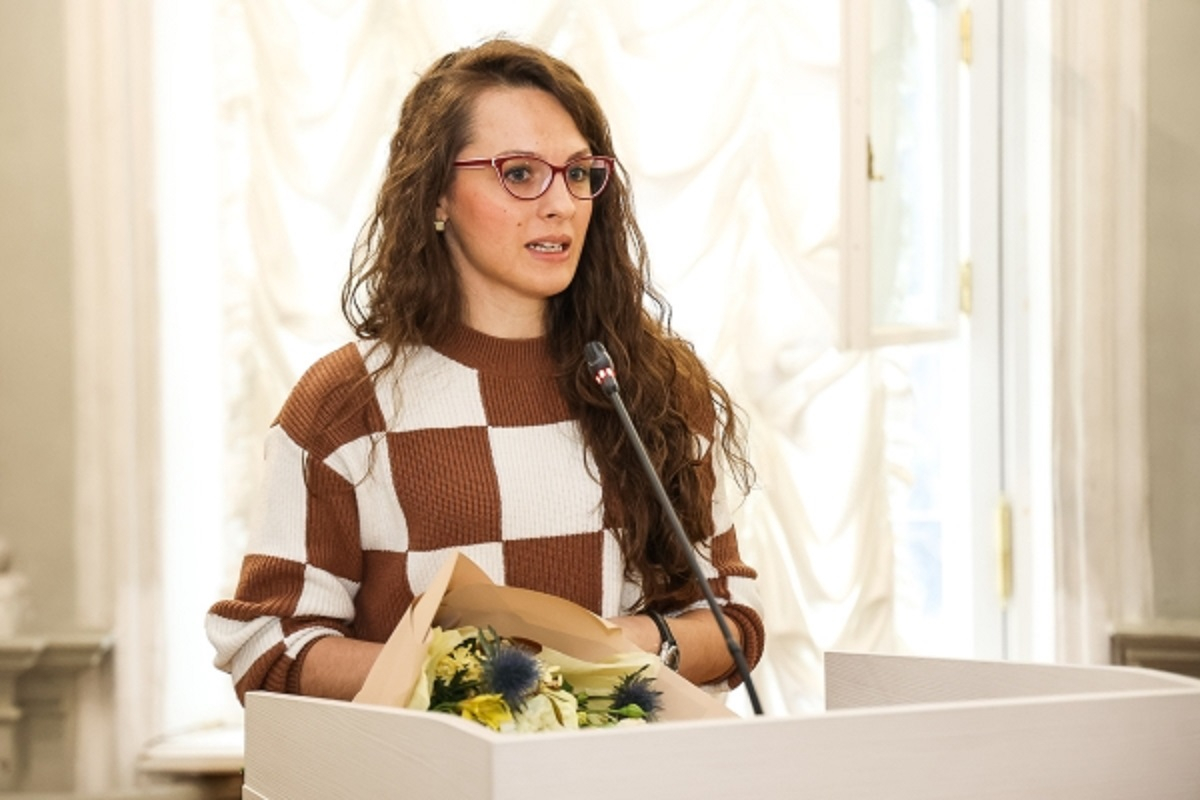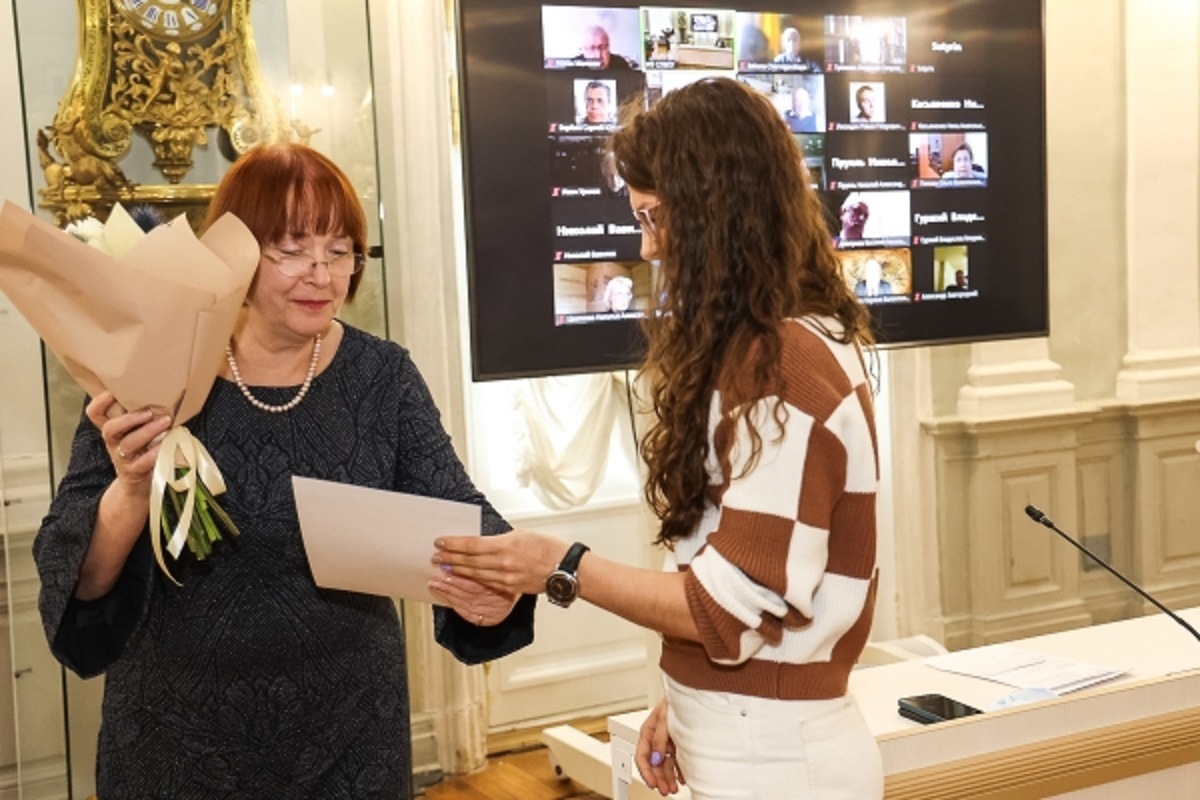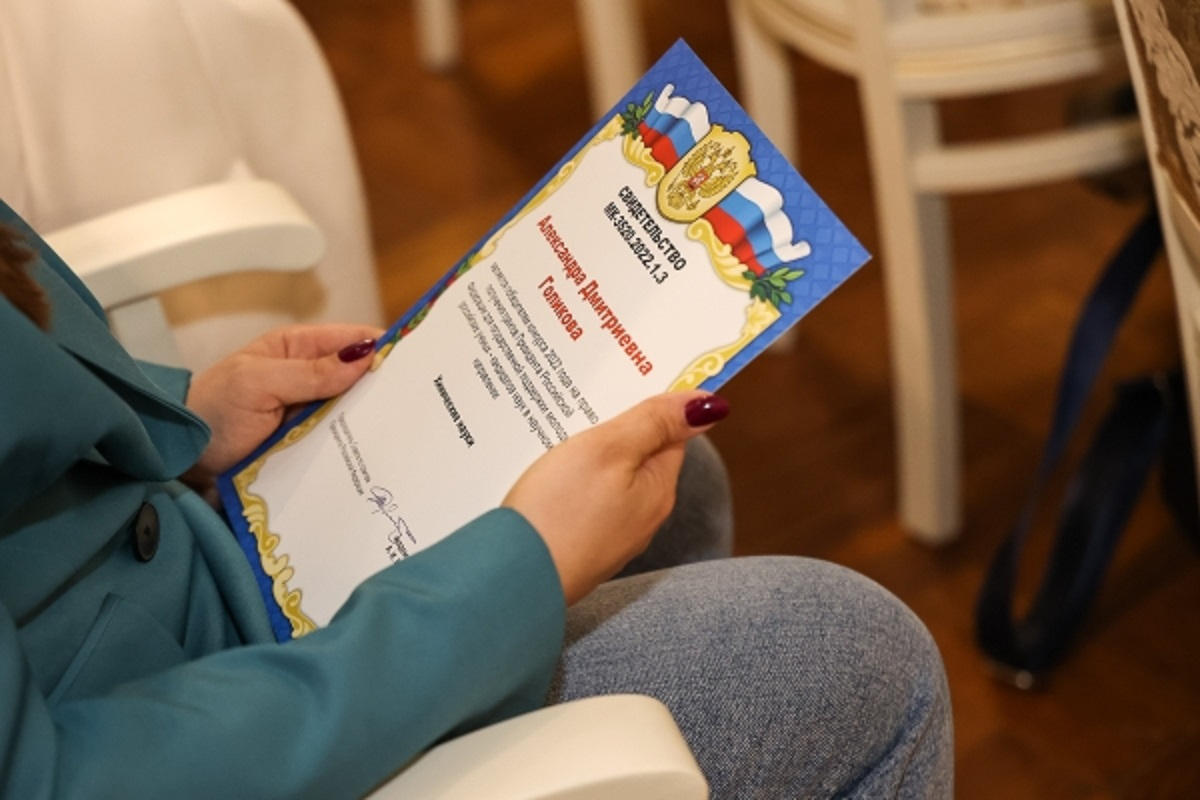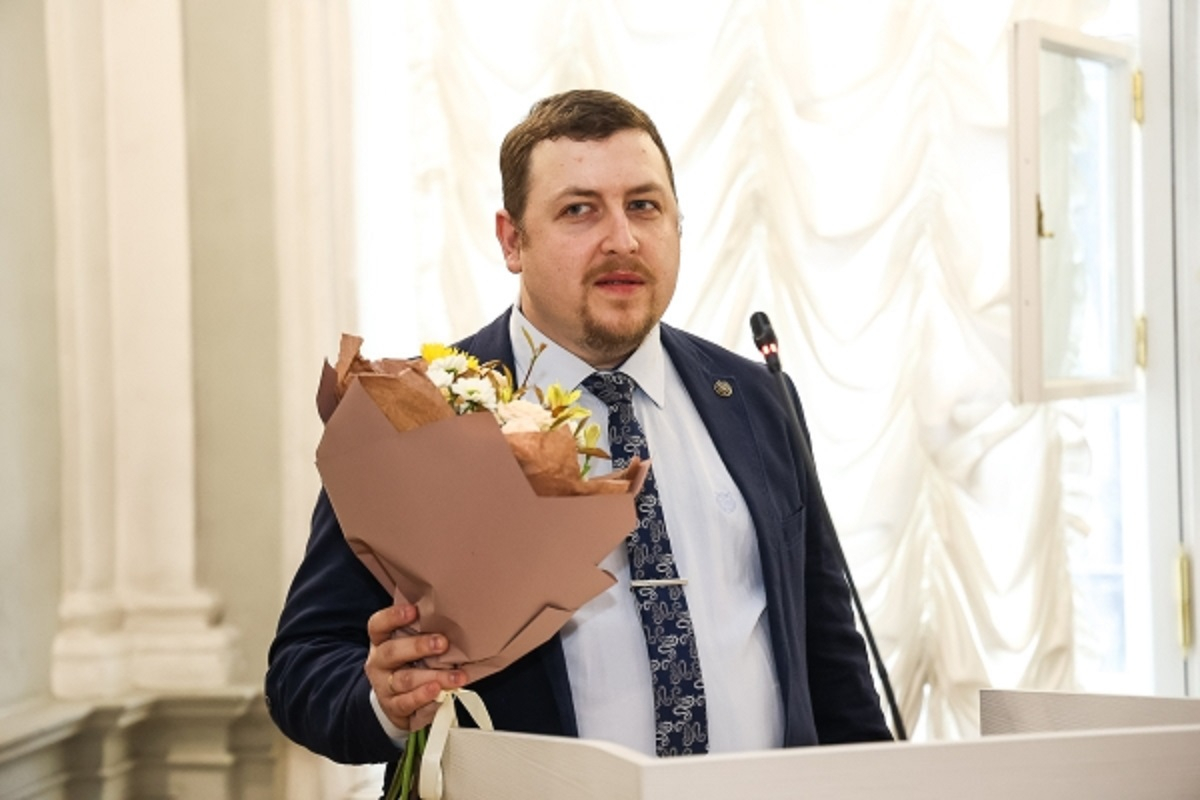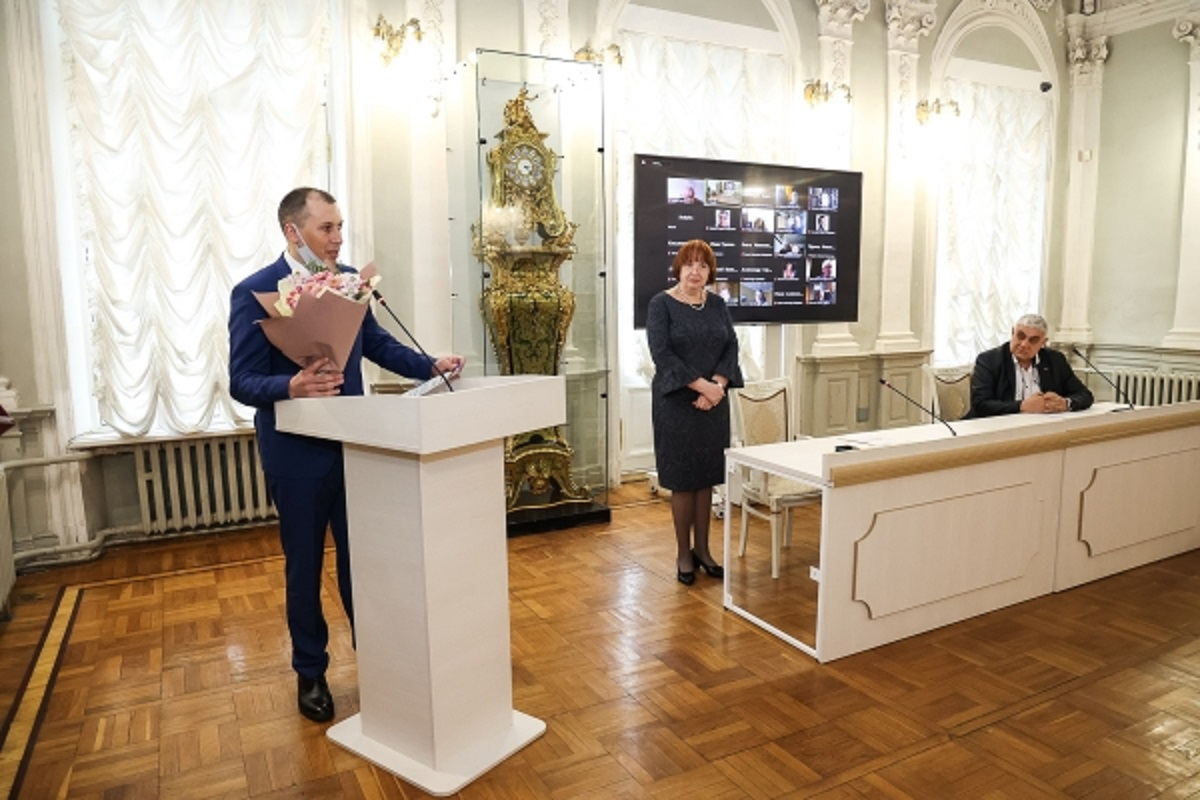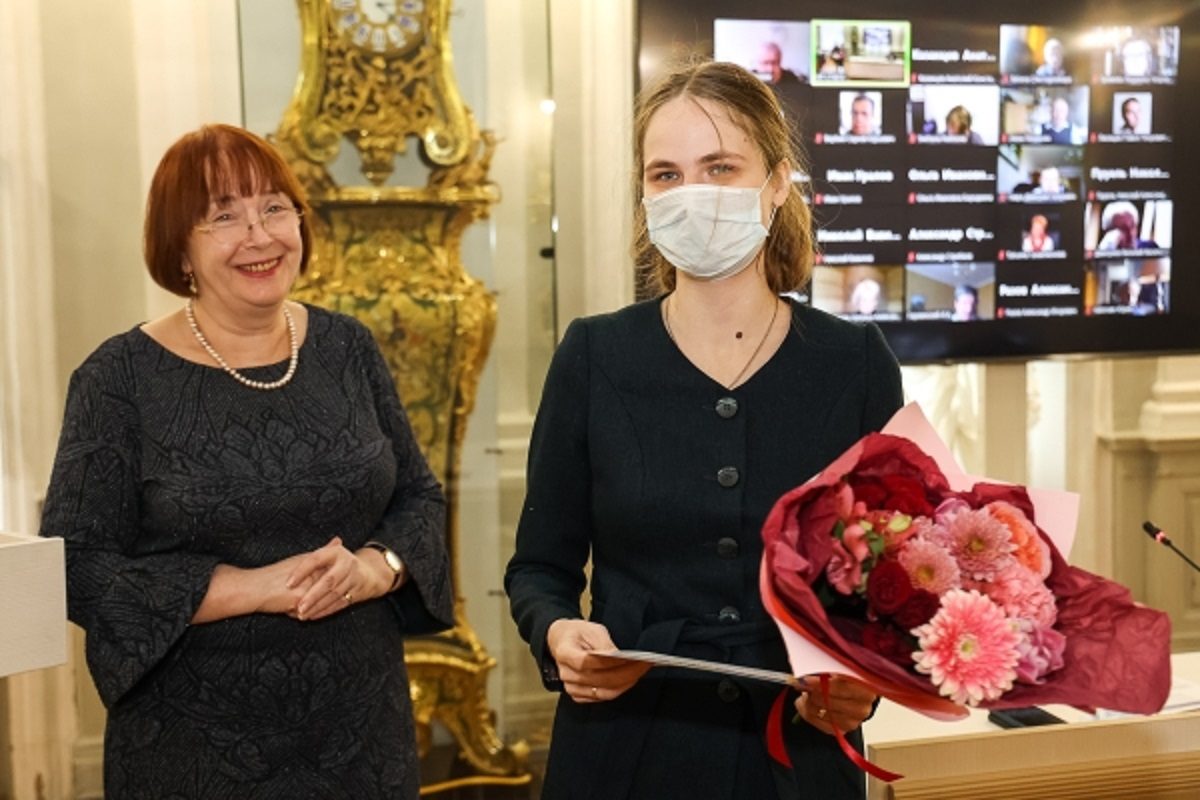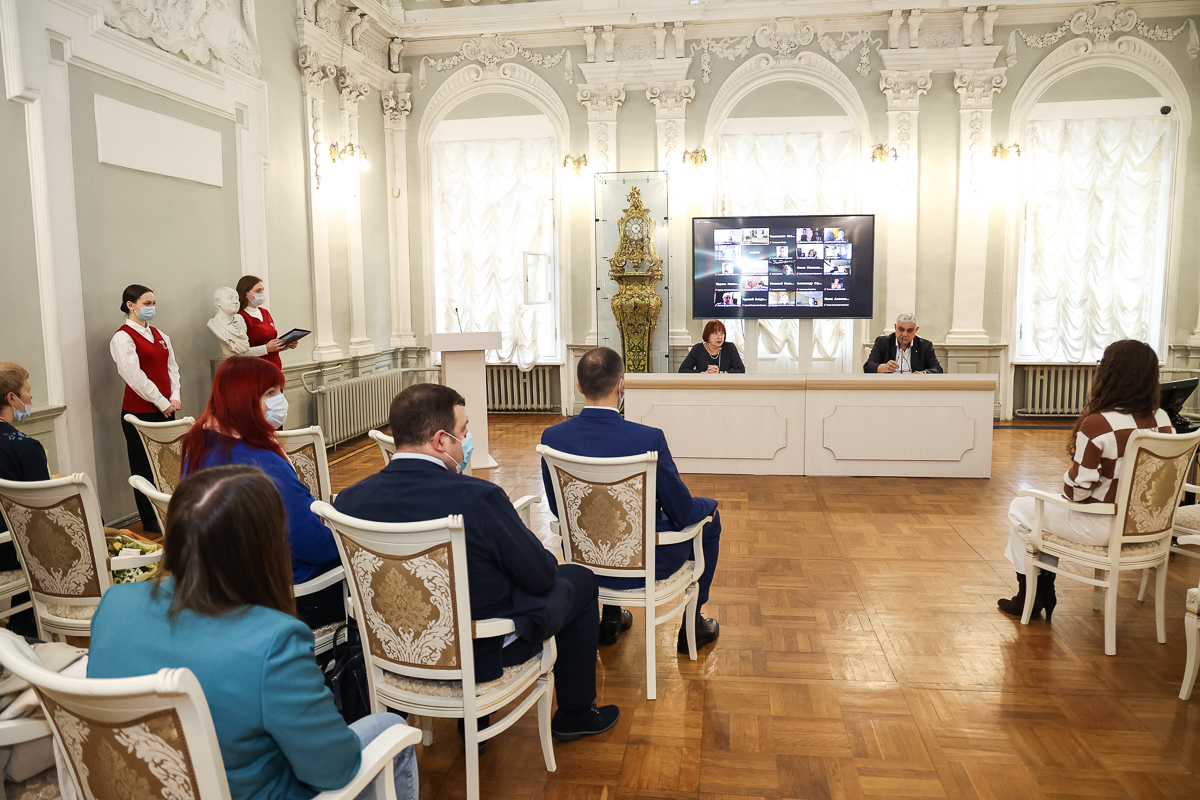St Petersburg University scientists win Russian Presidential Grants totalling 28 million roubles
At a meeting of the Academic Council of St Petersburg University, Elena Chernova, Senior Vice-Rector, presented grant certificates to this year winners of the Russian Presidential Grant contest. In 2022-2023, St Petersburg University scientists will receive Presidential Grants totalling 28 million roubles.
‘The results you have achieved today help to safeguard the University’s strong research and academic reputation. They reaffirm the relevance of our research, the quality of our logistic and research infrastructure, and the competence of our human resources,’ said Elena Chernova. She thanked the participants of the contest and stressed that the awards are very prestigious and highly competitive.
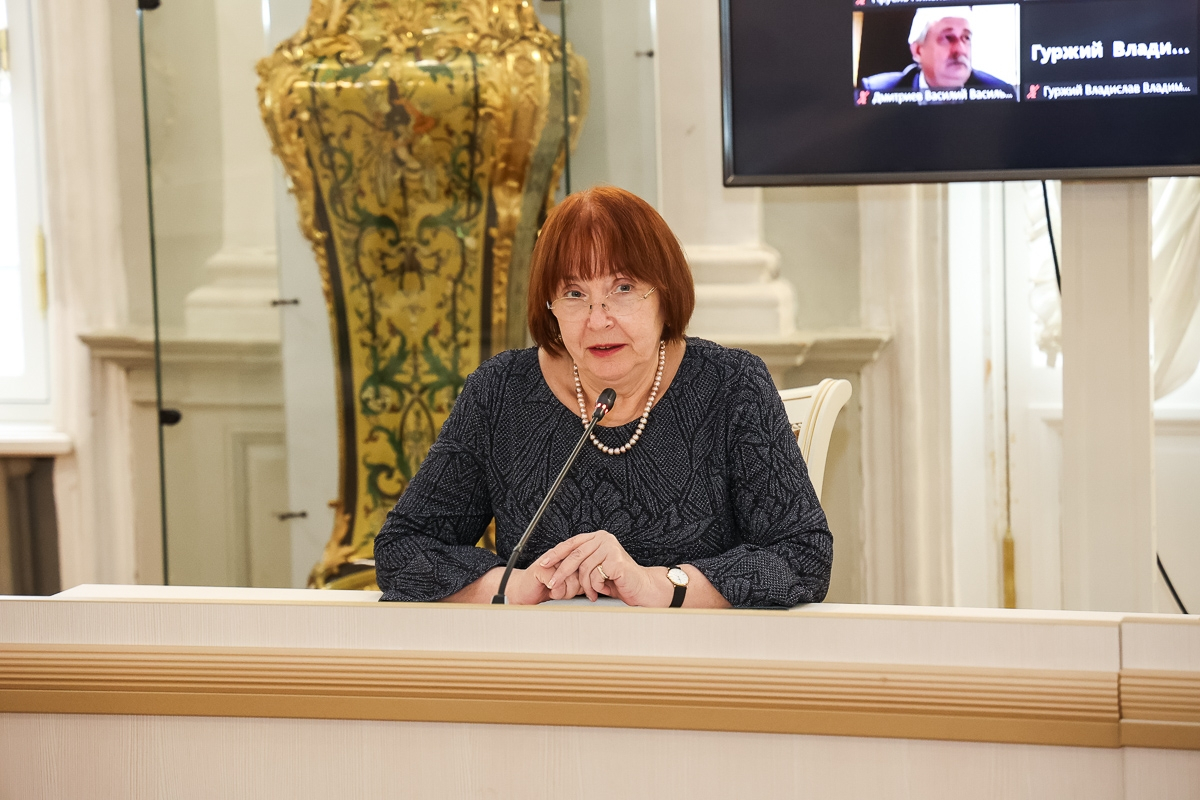
St Petersburg University participated in the Presidential Grant contest with: 30 applications from young PhD holders; one application from a Doctor of Science; and two project funding applications from leading scientific schools (centres of excellence). Following the competitive selection process, St Petersburg University ranked second among all research organisations in the number of Presidential Grants awarded to PhD holders (12 grants) — second only to Lomonosov Moscow State University.
We should note that Russian Presidential Grants are a measure of state support for young researchers. The grant funding helps to cover the costs of fundamental and applied research aimed to address particular issues within the areas defined in the Strategy for scientific and technological development of the Russian Federation. Traditionally, grants are awarded to the most talented and promising researchers who carry out investigations of both fundamental and applied value.
We congratulate St Petersburg University researchers who won the 2022 competition for the right to receive grants from the President of the Russian Federation for state support in the following nominations:
- heads of leading scientific schools (centres of excellence) in the following research areas:
- Earth sciences, Ecology and Environmental Management: Sergey Krivovichev, Head of the Department of Crystallography
- Mathematics and Mechanics: Nikolay Kuznetsov, Head of the Department of Applied Cybernetics
- young scientists in the following research areas:
- Social Sciences and Humanities: Dina Kopaneva, Assistant Professor in the Department of History of Slavic and Balkan Countries; Alexander Marchenko, Assistant Professor in the Department of Theory of Journalism and Mass Communications; Ivan Poliakov, Research Assistant at the Institute of History; Dmitry Sosnitsky, Assistant Professor in the Department of History of Russia from Ancient Times to the 20th Century; and Anton Chemakin, Assistant Professor in the Department of History Teaching for Students in Natural Sciences and Humanities
- Chemistry: Alexandra Golikova, Assistant Professor in the Department of Chemical Thermodynamics and Kinetics; Andrey Mereshchenko, Associate Professor in the Department of Laser Chemistry; and Andrey Shishov, Associate Professor in the Department of Analytical Chemistry
- Life Sciences: Dmitrij Dedukh, Junior Research Associate in the Department of Cytology and Histology; and Ekaterina Chebykina, Associate Professor in the Department of Applied Ecology
- Physics and Astronomy: Timur Zalialiutdinov, Associate Professor in the Department of Quantum Mechanics; and Aleksei Konashuk, Assistant Professor in the Department of Solid State Electronics
- Mathematics and Mechanics: Irina Aleksandrova, Associate Professor in the Department of Control Theory
Professor Nikolay Kuznetsov, Head of the Department of Applied Cybernetics, won a Presidential Grant as the head of a Leading Scientific School (a Centre of Excellence) of the Russian Federation — one of the three grants awarded in 2022 in mathematics and mechanics — in the priority area of the scientific and technological development of the Russian Federation "The transition to advanced digital, intelligent manufacturing technologies, robotic systems, new materials and methods of design, the creation of systems for processing large amounts of data, machine learning and artificial intelligence".
Since 1995 to the present, the status of "Leading Scientific School of the Russian Federation" (the Centre of Excellence) has been awarded by the Council for Grants of the President of the Russian Federation and the Ministry of Science and Higher Education of the Russian Federation based on the results of a competitive selection. To meet the selection criteria the research teams must: ‘demonstrate significant influence in the renowned wide-ranging field through conducting world-level research; be built on the long-standing traditions; and preserve continuity of traditions in preparing highest calibre researchers’.
St Petersburg University Research School has won Presidential Grants for the ninth time.
Nikolay Kuznetsov said that the research school was founded by Vladimir Yakubovich (1926–2012) and Gennady Leonov (1947–2018), who were Corresponding Members of the Russian Academy of Sciences. Interdisciplinary research carried out at the research school has made a contribution to the research and technological development of the Russian Federation and generated a positive response in the global scientific community. Since 2016, the leaders of the research school — Gennady Leonov and Nikolay Kuznetsov — have been regularly included in the list of highly cited researchers according to the Web of Science. The school is going from strength to strength, preparing and recruiting young talented scientists.
Andrey Shishov, Associate Professor in the Department of Analytical Chemistry, for the first time in Russia, proposed new environmentally-friendly solvents for the analysis of petroleum and its by-products. Andrey Shishov has won a Presidential Grant for the second time. He is planning to use the funding to upgrade laboratory equipment, purchase supplies and consumables, and participate in scientific conferences.
Dmitry Sosnitsky, Assistant Professor in the Department of Russian History from Ancient Times to the 20th Century, has won a Presidential Grant for the third time. His project "Representation of state leaders in the collective historical consciousness as illustrated by Vladimir Lenin and Josef Stalin" is aimed at identifying the general and the particular in shaping common perceptions of political leaders in the collective consciousness of Soviet and Russian society.
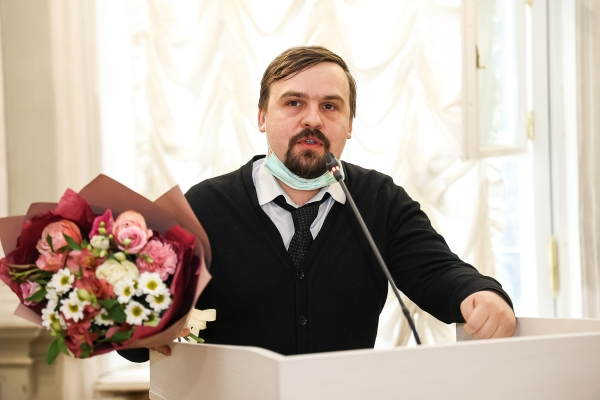
The two iconic figures of Russian national history are used to illustrate the principle: perceptions of the past are largely influenced by the society’s mandate and the political situation in the country as a whole. Dmitry Sosnitsky plans to determine the range of the most significant factors that influence the collective consciousness and identify the effective mechanisms for shaping perception of the heroes of the past in collective national memory.
In his previous projects, Dmitry Sosnitsky studied the perception of the Russian Middle Ages in the collective consciousness in the Modern and Contemporary times and the construction of a collective memory of the past in Russia in the second half of the 18th century.
As Dmitry Sosnitsky explained, although the objects of study are different, they are united by methods of research used in memory studies. Historians explore how various sources (periodicals, audio and video recordings, school textbooks, movies, etc.) shape our perception of the past.
Elena Chernova noted that the number of applications to the Presidential Grant contest from young scientists affiliated with St Petersburg University is still low. They account for about 1% of all young researchers at the University. She also reminded that St Petersburg University is currently implementing a whole range of measures to support young scientists and scholars. These measures include: open competitions of projects to create research laboratories under the leadership of young scientists; the Rector’s scholarship programme for doctoral students; awards to winners in research paper competition in nomination "The best research publication by a young researcher"; competitions for the provision of temporary accommodation in the University-owned housing; and competitions for travel grants and academic events funding to name but a few.
Elena Chernova appealed to the University academic and research teams and members of the Academic Council for assistance in finding ways to motivate young researchers from St Petersburg University to enter grant competitions. She also congratulated this year winners: ‘Well done! You are the hope and future of the University!’



